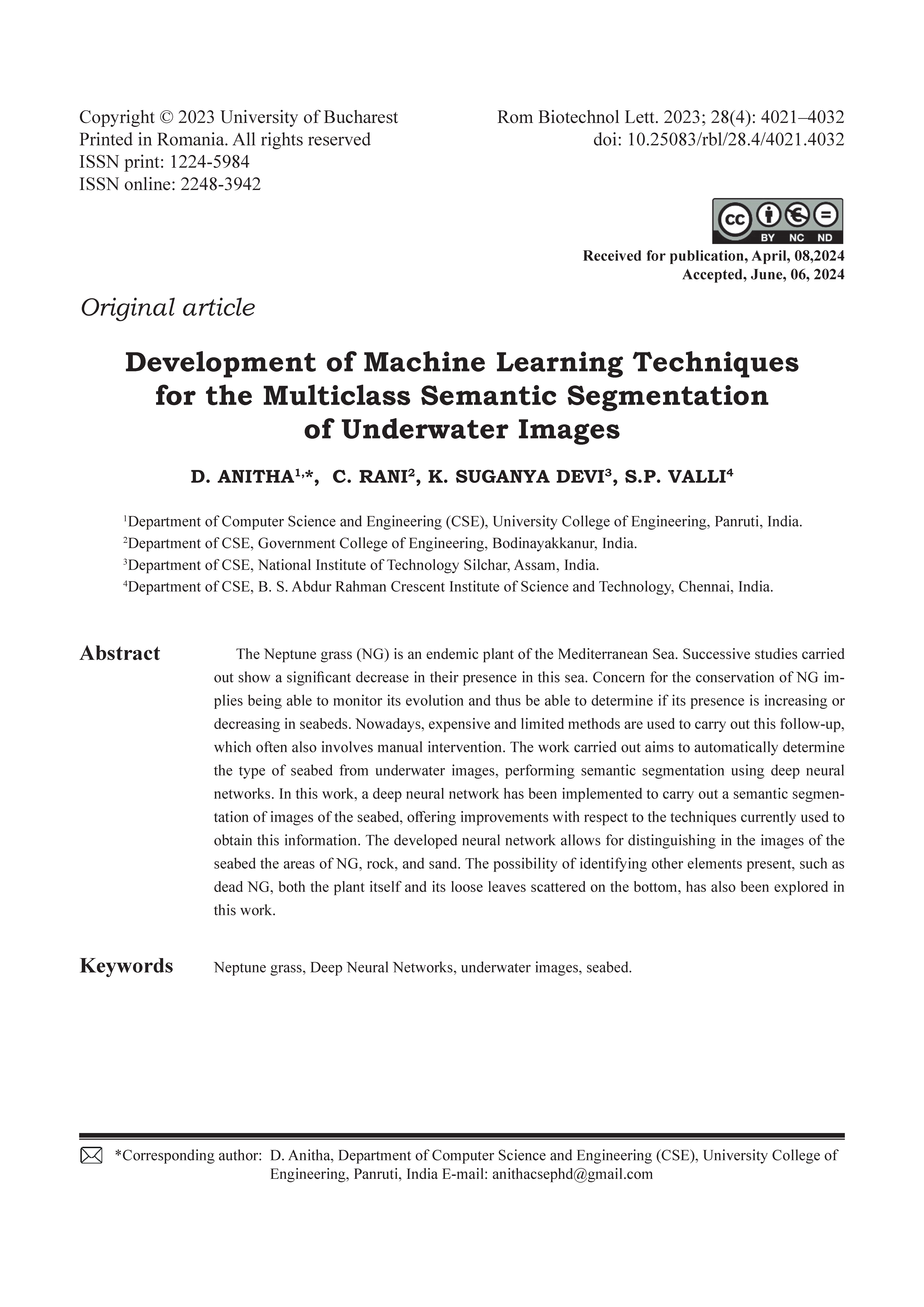Development of Machine Learning Techniques for the Multiclass Semantic Segmentation of Underwater Images
DOI:
https://doi.org/10.25083/rbl/28.4/4021.4032Keywords:
Neptune grass, Deep Neural Networks, underwater images, seabedAbstract
The Neptune grass (NG) is an endemic plant of the Mediterranean Sea. Successive studies carried out show a significant decrease in their presence in this sea. Concern for the conservation of NG implies being able to monitor its evolution and thus be able to determine if its presence is increasing or decreasing in seabeds. Nowadays, expensive and limited methods are used to carry out this follow-up, which often also involves manual intervention. The work carried out aims to automatically determine the type of seabed from underwater images, performing semantic segmentation using deep neural networks. In this work, a deep neural network has been implemented to carry out a semantic segmentation of images of the seabed, offering improvements with respect to the techniques currently used to obtain this information. The developed neural network allows for distinguishing in the images of the seabed the areas of NG, rock, and sand. The possibility of identifying other elements present, such as dead NG, both the plant itself and its loose leaves scattered on the bottom, has also been explored in this work.





